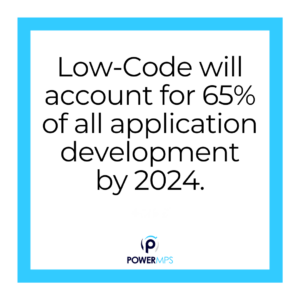Blueprint for the Next-Gen ERP
Today’s digital marketplace is a constant swirl of evolution. Amidst this, enterprises are always hunting for innovative ways to retain a competitive edge and maintain profitability. Notably, the Enterprise Resource Planning (ERP) solution stands out in their digital toolkit. This tool has distinguished itself in enhancing operational processes. Simultaneously, it offers the potential to integrate and streamline various business operations, thus improving overall efficiency and profitability.
However, ERP adoption hasn’t been static. Instead, it’s experienced an impressive evolution over time. This is a result of persistent technological advancements and the ever-changing business needs that are shaping the modern world.
As businesses evolve, so does their perception of an ideal ERP solution. With this transition, the concept of a future-proof ERP has taken root. Presently, businesses are lining up the traits their ERP systems must embody. These are aimed at ensuring their adaptability to future business scenarios and maintaining their agility and responsiveness.
Accessibility from Anywhere
In today’s ever-evolving digital landscape, accessibility is not merely a luxury, but a necessity. Reflecting the rise of global business environments and an increase in remote work settings, ERP systems, too, have had to adapt. Bearing the future in mind, these systems now prioritize accessibility from anywhere.
Underscoring this trend, statistics published by the U.S. Census Bureau show that remote work has more than tripled since 2019. It’s a powerful testament to this new norm. Consequently, we now expect ERP systems to grant access to employees from an array of geographical locations, at any time, and on any device.
So, as we look to the future, accessibility has a profound impact on determining what constitutes a future-proof ERP solution. Enhancing accessibility ensures flexibility and business continuity – two valuable attributes in the volatile, high-paced business world of today.
100% In The Cloud
As we traverse into the digital era, cloud technology has emerged as a game changer for many business operations. The way businesses manage their resources and processes is increasingly shifting towards the cloud, propelling ERP solutions to be entirely cloud-based to remain competitive.
A report from Fortune Business Insights predicts that the global public cloud market will reach an impressive $677.95 by 2024, a clear testimony to the massive role of cloud technology in shaping future business strategies. Rather than confining themselves to traditional models, businesses are increasingly looking for ERPs that offer the flexibility, scalability, and cost-effectiveness intrinsic to cloud-based solutions.
A Break From “Per User” Pricing
In the era of customization, conventional “per user” ERP pricing feels obsolete. Transitioning to our present model, businesses are experiencing a significant shift in ERP pricing strategies.
Now, enterprises prefer models that favor flexibility and scalability. Breaking away from the customary “per user” pricing is the new trend. This deviation aligns with the IDC forecast, which projects a change toward usage-based pricing in ERP solutions.
Consequently, this model mirrors the actual system usage. This allows businesses to adapt their systems according to growth, needs, and budgets. Shifting away from “per user” pricing, we align costs with business value. This changes the perception of ERP solutions from financial burdens to strategic investments. Ultimately, this approach aids in making the ERP system chosen today a beneficial asset for tomorrow’s businesses.
Ownership of Data
Data ownership has become an essential consideration for businesses in this data-driven age. One of the pillars of a future-proof ERP is ensuring that data ownership and control rests in the hands of the business itself.
As data breaches continue to surge, managing the information that an ERP system can access is vital for maintaining business integrity and customer trust. By ensuring businesses retain ownership of their data, ERPs can promote better security and privacy. This becomes especially beneficial when dealing with sensitive information, allowing businesses to remain in control of their data governance strategies, thus shaping a truly future-proof ERP.
No-Code or Low-Code
 In the ever-evolving landscape of ERP solutions, simplifying the process of customization has become a focal point. The future of ERP seems headed towards no-code or low-code platforms, making it significantly user-friendly.
In the ever-evolving landscape of ERP solutions, simplifying the process of customization has become a focal point. The future of ERP seems headed towards no-code or low-code platforms, making it significantly user-friendly.
A forecast by Gartner highlights the influence of low-code in the future of application development, predicting that it will account for 65% of all application development by 2024. These platforms are designed to accommodate users with minimal coding experience. Therefore, every business user can tailor the ERP system to the changing company requirements, even without an extensive IT background.
Consequently, this means faster deployment of new features and less reliance on IT teams. Companies save time and resources, driving efficiency and productivity. With these low-code or no-code ERP systems, organizations can keep pace with the swift business process and strategy changes. Essentially, they are the key ingredient for creating a future-proof ERP system.
A future-proof ERP would embrace the emerging shifts in the workplace, embody flexibility, enhance data privacy, and expedite application development. Businesses must carefully select ERP solutions with features that align with these future demands to ensure they’ve invested in a system designed for longevity.
Lear more about ERP here


Comments (0)